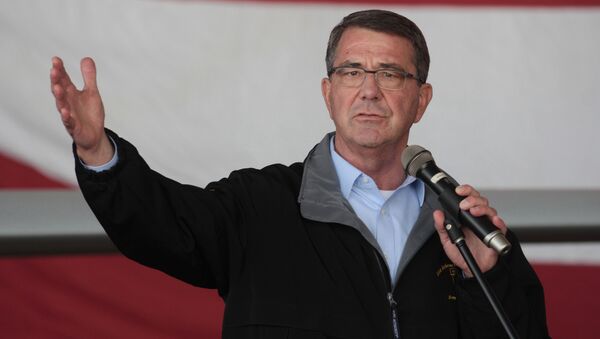Speaking to NBC's "Meet the Press," Carter didn't explicitly call the hack an "act of war," as Senator John McCain has, but said, "Whatever you call it, it's an aggressive act against our very democracy, and that's why I think all Americans need to regard it very seriously."
As to what should be done in response, Carter seemingly left all options on the table, even saying the response shouldn't be "purely military."
"I think we should not limit ourselves, when cyber is the means used to commit aggression against us, to a cyber response," he said. "I don't think it should be a military or purely military response."
But there must be a response, he stressed.
President Barack Obama has already thrown 35 Russian diplomats out of the country and shut down two country retreats, characterized by some as "spy compounds" and others as "vacation houses."
"I think the steps that have been taken so far probably represent a beginning and not the end," Carter said. There should be more and probably will be more, he said. And with no "limits," who knows what they may be?
Carter also praised the work of the US intelligence community in identifying Russia as the DNC culprit, despite skepticism. LINKS. He called the report that finally assigned blame for the leaked emails "painstaking" and "careful," characterizations that have been repeatedly challenged in the press.
Carter was gloomy in his assessment of US-Russia relations, likening them to the strain of the height of the Cold War 35 years ago, when he first began working at the Pentagon. "At that time we had serious problems with Moscow, as we do now," he said. However, he said, the US has always sought common ground with Russia and ways to work together even in (cold) wartime.
The current difficult in doing that is because Russia, rather than pursuing its own prosperity and development as a nation, is spending time and treasure merely antagonizing the US, according to Carter. To what end, he did not say.
"What's become difficult in recent years is that Russia under Putin has tended to define its interests as being ones of frustrating the United States rather than pursuing its own interests," Carter asserted.




